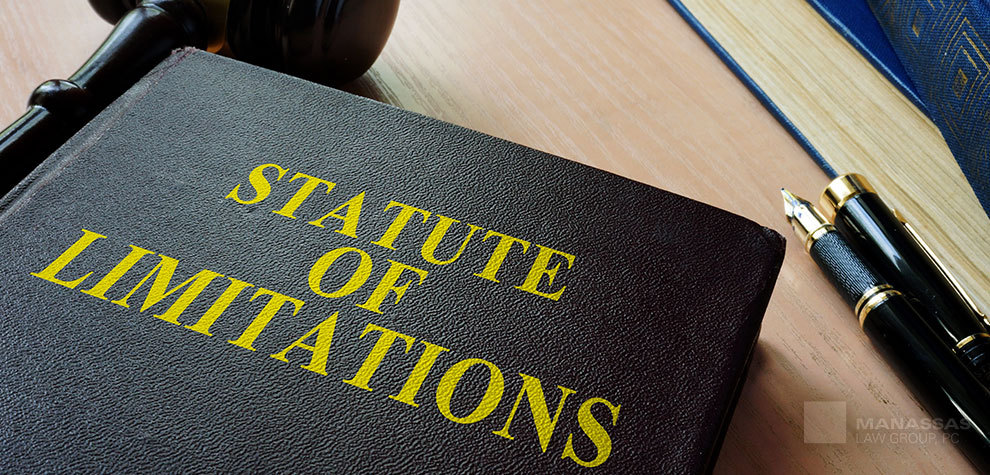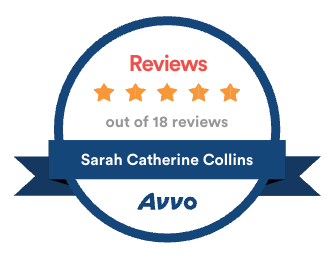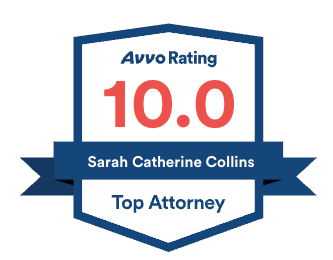A Virginia statute of limitations is a time limit for filing a lawsuit in Virginia. If you file a lawsuit after the statute of limitations has run out, Virginia bars you from pursuing this case in court. These exist for both civil and criminal cases. This includes personal injury claims.
It is important that you do not take the Virginia statute of limitations lightly. Virginia strictly enforces the rules governing the time you have to file a personal injury claim. Whether you might have won your personal injury case, the Virginia statute of limitations will take precedence. If you wait too long, your case will be invalid.
When you suffer a personal injury, it can be difficult to determine what your statute of limitations is, or when time begins to run. For this reason, you should contact an experienced personal injury attorney at the Manassas Law Group immediately.
What is the Virginia Statute of Limitation for a Personal Injury?
Virginia § 8.01-243 outlines the statute of limitations for personal injury claims.
The statute of limitations for personal injury lawsuits resulting from a car accident is two years. This time begins to run the day of the accident. This means you have to file your personal injury lawsuit within two years of the date of your car accident.
The two year Virginia statute of limitations also applies to personal injury actions based on:
Exceptions to the Virginia Statute of Limitation For Personal Injury
There are a few exceptions to this 2-year rule.
For instance, for medical malpractice, the Virginia statute of limitations allows time for the discovery of foreign objects in the body. There is also a time of discovery rule for fraud and concealment of the malpractice, and failure to diagnose. This is because these results of the malpractice may not present themselves within two years.
Similarly, there are special personal injury statutes of limitations for children. Injured children have until their tenth birthday to file a medical malpractice suit. They have until their twentieth birthday to file a personal injury lawsuit based on a car accident.
What is the Virginia Statute of Limitation for Personal Injury and Property Damage Together?
In a car crash, there may be both personal injury claims and property damage claims.
The same 2-year rule applies to your personal injury claim. But there is a different statute of limitations for your property damage claim.
In Virginia, you have five years from the date of the accident to file a property damage claim. Though you should pursue both claims as quickly as possible if it comes down to prioritizing one over the other, pursue personal injury first.
Why Do We Have a Virginia Statute of Limitations for Personal Injury?
Courts have been using statutes of limitations for hundreds of years. Ideally, statutes of limitations force the plaintiff to exercise their legal rights within a reasonable time.
According to the Supreme Court of Virginia in 1946, statutes of limitations are in place to suppress fraudulent and old claims. In claims where more than two years have elapsed, the facts of the case can become obscure. Witnesses may have moved or died, and memories will be scarce and inaccurate.
In short, when more than two years pass, it is unlikely the plaintiff will be able to prove liability anyway. This would result in a waste of the court’s time as well as a waste of the defendant’s time. This is why plaintiffs must pursue personal injury lawsuits within two years, aside from the exceptions we have already discussed.
How Do I Determine the Correct Virginia Statute of Limitations?
You must determine which statute of limitations applies to your case. A mistake could lead to you filing your claim at the wrong time.
The first step is to identify the type of personal injury action involved. Different statutes of limitations apply to child injury, motor vehicle accidents, medical malpractice, and worker’s compensation claims. If you are unsure which applies to your case, it’s all the more reason to contact an attorney immediately.
Once an attorney determines the correct type of negligence action, they can help you determine how much time you have to file a claim. This involves determining when the statute began to run and whether any circumstances allow for an extension.
Sometimes it is easy to determine when a statute of limitations began to run. For car accidents, it begins to run the day of the accident.
But in some cases it is more complicated. Take actions for personal injury based on defective breast implantation. Time begins to run when the plaintiff discovers the injury and learns of its causal connection to the breast implants. Thus if your breast implants are three years old and you just learned they are the cause of a personal injury, your statute of limitations begins that day.
Can the Courts Extend the Personal Injury Statute of Limitations?
Some of you are reading this and thinking that it’s too late to file your personal injury claim. That isn’t necessarily the case.
There are some situations where the courts can toll, or stall, the statute of limitations. This happens if:
- The plaintiff is under a disability, a minor or of unsound mind.
- Defendant committed fraud.
- The action has been non-suited.
These are the most common reasons plaintiffs receive an extension. So even if none of these situations apply to you, don’t give up. Contact a personal injury attorney immediately to see if you qualify for an extension.
Contact the Manassas Law Group for Your Personal Injury Claim
If you or a loved one is suffering from a personal injury, we believe you deserve compensation. The Manassas Law Group has been providing legal counsel to the citizens of Virginia for decades. To contact our offices, call 703.361.8246. You can also send us an email directly to schedule a case evaluation.















